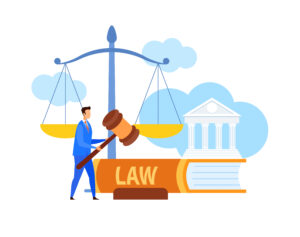Read part two, “The Role of The Accountant,” here.
Attorneys play a crucial role in charitable giving by providing legal guidance and expertise to individuals, businesses and nonprofit organizations involved in philanthropy. Though their role encompasses various aspects of charitable giving, here we will discuss their role as the donor’s advisor.
Attorneys assist in developing tax-efficient strategies for charitable giving. This may involve advising on the tax implications of different donation methods and assets. They seek to maximize the donor’s tax benefits while staying in compliance with tax laws. Often, their role is on a more holistic or macro level than an accountant’s.
Attorneys draft and review legal documents related to charitable gifts, such as gift agreements, gift acceptance policies and endowment agreements. These documents outline the terms and conditions of the charitable gifts, ensuring that both donors and charities understand their obligations. As a fundraiser, it is common to find yourself in a give-and-take with your donor’s attorney on the language of a gift agreement because their role is to protect the interests of their client. Attorneys often negotiate and structure major charitable gifts, especially in the case of large donations or complex assets, and they ensure the terms of the gift align with the donor’s intentions and comply with legal requirements.
An attorney’s privilege protects confidential communications between an attorney and a client made for the purpose of obtaining or providing legal advice from disclosure to third parties. The main purpose of the privilege is to encourage clients to provide all the necessary facts to their attorneys so that their attorneys will, in turn, guide clients’ conduct in the right direction and resolve disputes.
Attorneys are almost always involved in estate matters and assist individuals in incorporating charitable giving into their client’s estate plans. This may involve creating charitable trusts, bequests or other estate planning tools to support charitable causes in the long term. It’s important to note that with the estate tax exemption scheduled to sunset in 2025, many of your donors will be working with their attorneys to adjust their estate plans, therefore continuing a consistent message to your donors about the role and use of wills and trusts in gift planning is critical.
Regarding gift design bias
In general, attorneys charge by the hour, and their compensation is not affected by the transfer of their client’s assets (although in some instances they may charge a flat fee for a simple will). However, they may serve as a trustee of a charitable trust and collect fees for that service—bear this in mind when a gift annuity may be the more straightforward gift and the attorney is recommending a charitable trust.
“The Role of the Attorney” is part three in the five-part blog series “Getting To Know the Advisors” by Kristin Croone.
Read part four, “The Role of the Professional Fiduciary,” here.
 Kristin Croone, JD, is a senior consultant who assists her clients with estate settlement as well as provides advice and develops strategies for successful gift planning programs. Connect with Kristin at LinkedIn or by email.
Kristin Croone, JD, is a senior consultant who assists her clients with estate settlement as well as provides advice and develops strategies for successful gift planning programs. Connect with Kristin at LinkedIn or by email.


